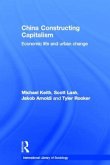This book synthesises several decades of research to extend beyond the limitations of a traditional functionalist model, offering a twenty-first century theory of professions and professionalism for a new generation engaging in theorising and research.
It asserts nine innovative arguments, drawing on major theorists such as Johnson, Freidson, Larson, Weber, Foucault and Bourdieu to achieve a global framing of professions. Concepts of bundling and unbundling are used to explain changes happening to professions as they cease to be exclusive containers that fully control particular forms of knowledge. Examining how professions are changing today reveals the ways in which expectations around expertise and goodness have altered for all stakeholders: consumers, regulators, corporations and professions themselves. Unbundled professions morph into new forms of professional work, under new conditions, technologies and social arrangements
Professionals and policy-makers interested in shaping the future of professions must recognise the potential impacts from an increasingly globalised, digitalised and managerialised world, and this book will be a key addition for scholars and practitioners alike.
It asserts nine innovative arguments, drawing on major theorists such as Johnson, Freidson, Larson, Weber, Foucault and Bourdieu to achieve a global framing of professions. Concepts of bundling and unbundling are used to explain changes happening to professions as they cease to be exclusive containers that fully control particular forms of knowledge. Examining how professions are changing today reveals the ways in which expectations around expertise and goodness have altered for all stakeholders: consumers, regulators, corporations and professions themselves. Unbundled professions morph into new forms of professional work, under new conditions, technologies and social arrangements
Professionals and policy-makers interested in shaping the future of professions must recognise the potential impacts from an increasingly globalised, digitalised and managerialised world, and this book will be a key addition for scholars and practitioners alike.








